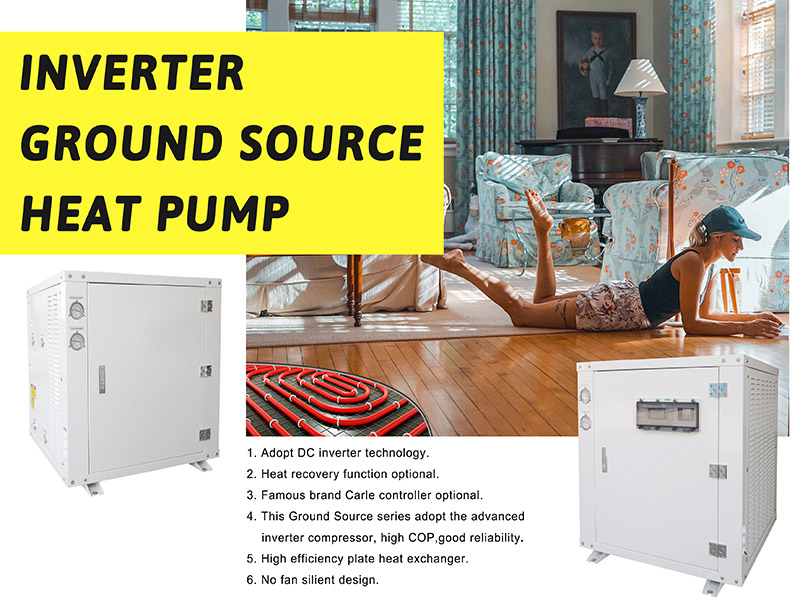How much you can save will depend on what system you use now, as well as what you are replacing it with. Your savings will be affected by:
Heat from the ground is absorbed at low temperatures into a fluid inside a loop of pipe (a ground loop) buried underground. The fluid then passes through a compressor that raises it to a higher temperature, which can then heat water for the heating and hot water circuits of the house.
The cooled ground-loop fluid passes back into the ground where it absorbs further energy from the ground in a continuous process as long as heating is required.
If there is enough space, the collector loop can be laid horizontally in a trench about a metre or so below ground. Where there isn’t room to do this you can drill vertical boreholes to extract heat from much further down, typically 90 – 160 metres deep.
The space you need for a horizontal loop, and the depth you need for a borehole, will depend on many factors – your heat pump installer will design the collector array based on local conditions and the heat requirements of your home.
Heat pumps have some impact on the environment as they need electricity to run, but the heat they extract from the ground, the air, or water is constantly being renewed naturally.

COSTS
Installing a typical system costs around £ 10,000 to £ 18,000 running costs will depend on a number of factors including the size of your home and how well insulated it is.
How do ground source heat pumps work?
Savings
(1) Your heat distribution system:
Underfloor heating can be more efficient than radiators because the water doesn't need to be so hot. If underfloor heating isnt possible, use the largest radiators you can Your installer should be able to advise on this.
(2) Your fuel costs:
You will still have to pay fuel bills with a heat pump because they are powered by electricity, but you will save on the fuel you are replacing. If the fuel you are replacing is expensive you are more likely to make a saving
(3) Your old heating system:
If your old heating system was inefficient, you are more likely to see lower running costs with a new heat pump.
(4) Water heating:
If the heat pump is providing hot water then this could limit the overall efficiency. You might want to consider solar water heating to provide hot water in the summer and help maintain your heat pump efficiency.
(5) Using the controls:
Learn how to control the system so you can get the most out of it. You will probably need to set the heating to come on for longer hours, but you might be able to set the thermostat lower and still feel comfortable. Your installer should explain to you how to control the system so you can use it most effectively.
Remark:
Some of the articles are taken from the Internet. If there is any infringement, please contact us to delete it. If you’re interesting in heat pump products,please feel free to contact OSB heat pump. We are your best choice.

